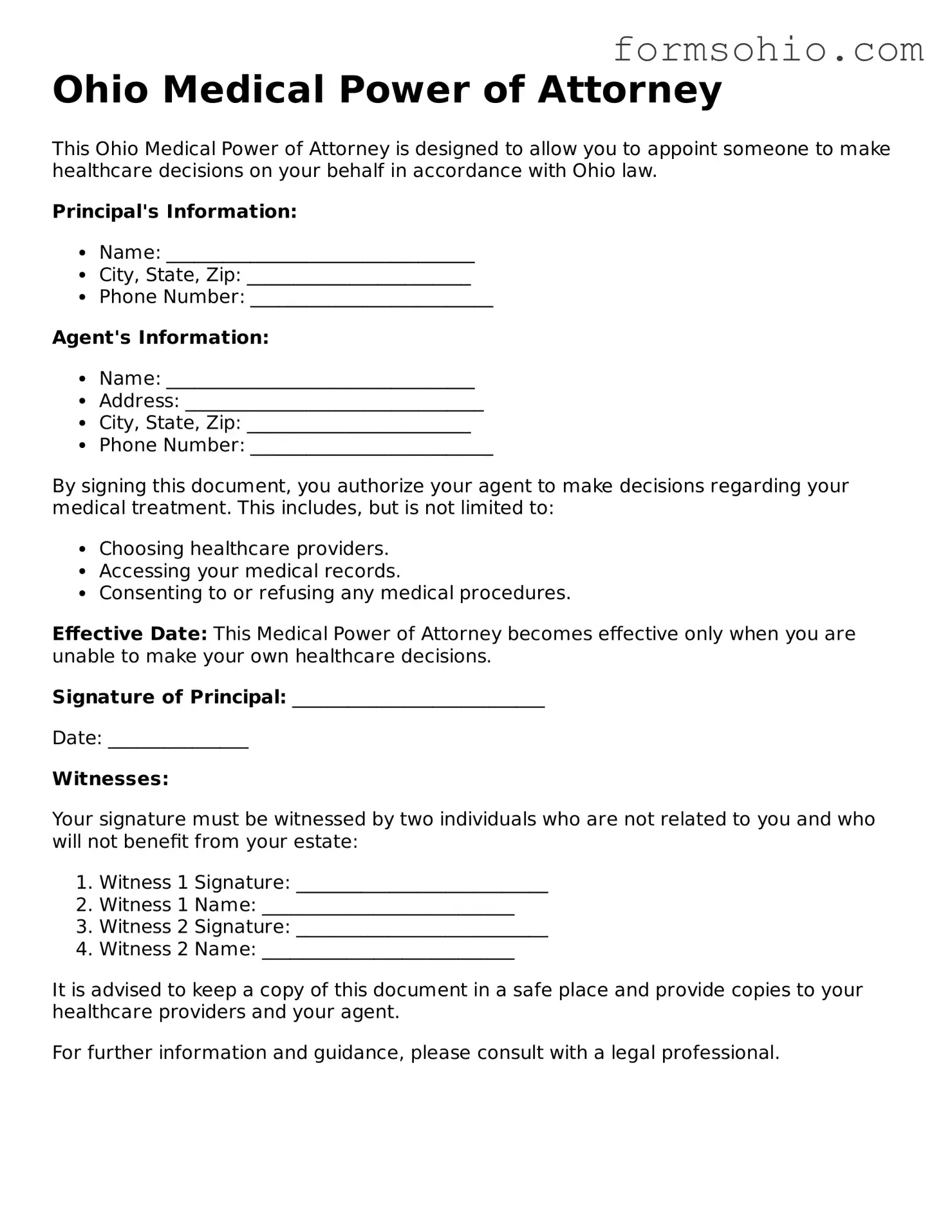Filling out the Ohio Medical Power of Attorney form can be a crucial step in ensuring that your healthcare wishes are honored when you are unable to communicate them yourself. However, many individuals make common mistakes that can lead to complications down the line. Understanding these pitfalls can help you navigate the process more smoothly.
One frequent error is neglecting to choose an appropriate agent. It is essential to select someone who understands your values and healthcare preferences. This person should be trustworthy and capable of making decisions on your behalf. Failing to consider these qualities can result in decisions that do not align with your wishes.
Another mistake is not specifying the scope of authority granted to the agent. Many people assume that their agent will automatically know what to do in every situation. However, it is vital to clearly outline what medical decisions your agent can make. This can include anything from treatment options to end-of-life care preferences.
Some individuals overlook the importance of signing and dating the form correctly. In Ohio, the Medical Power of Attorney must be signed by the principal and witnessed by two individuals or notarized. If this step is skipped or done incorrectly, the document may not be valid when needed.
Additionally, failing to communicate your wishes to your agent can lead to confusion. It is crucial to have an open conversation with the person you designate as your agent. Discuss your healthcare preferences and ensure they understand your values. This dialogue can prevent misunderstandings during critical moments.
People often forget to update their Medical Power of Attorney when their circumstances change. Life events such as marriage, divorce, or the death of a designated agent can necessitate revisions to the document. Regularly reviewing and updating your form ensures it reflects your current situation and preferences.
Another common oversight is not considering alternate agents. If your primary agent is unavailable or unable to fulfill their role, having a backup can be invaluable. Designating an alternate agent can provide peace of mind and ensure that your healthcare decisions are still made according to your wishes.
Some individuals may also fail to provide copies of the completed form to relevant parties. It is advisable to share the Medical Power of Attorney with your healthcare providers, family members, and the designated agent. This ensures that everyone involved is aware of your wishes and can act accordingly.
Moreover, misunderstanding the legal language or terms used in the form can lead to misinterpretations. While the Ohio Medical Power of Attorney is designed to be straightforward, it is essential to read it carefully and seek clarification if needed. Misunderstandings can result in unintended consequences.
Lastly, many people do not take the time to review the form periodically. As life changes, so might your healthcare preferences. Regularly reviewing the document ensures that it continues to reflect your current wishes and that your agent is still the best choice for your needs.

